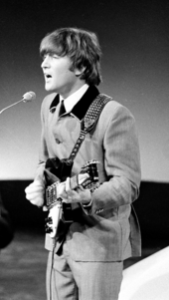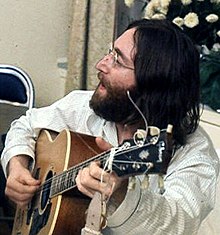I saw three movies recently: one new and two old.
First was BLACK PANTHER. My kids love Marvel superhero movies, and so I get dragged to a lot of them. This one was no exception. Yes, there are plenty of plot holes (if you want to know what they might be, go watch one of those “How It Should Have Ended” type videos where some witty You-Tuber analyzes the film. I particularly liked the one that ended up being an economic tutorial which discussed the Wakondan monopoly on vibranium) but it’s a movie that addresses some serious issues and manages to entertain the hell out of you with tons of cool special effects and more action than most movies. The actors are mostly good to great in quality, and I had fun watching it — more than I thought I would, because I’m NOT a huge fan of the superhero movies. (I like them, but I’m not obsessed with them.)
The second movie I watched on YouTube, and it was called “Two of Us.” As you might guess from the title, it’s about Paul McCartney visiting John Lennon in NYC on the day that SNL’s Lorne Michaels made his legendary offer of $3000.00 for a Beatles reunion on their stage. It was an interesting character study which is loosely based (meaning, no one really knows what really happened that day) on real events of that day. The actors had the mannerisms of their subjects down pretty well. Aiden Quinn’s gestures were all pure McCartney.
The last movie was one I watched on demand with my younger son the sports fanatic. He wanted to watch MAJOR LEAGUE, and I agreed. It’s not a great movie, but it IS a funny movie. Lots of swearing and inappropriate jokes, but it was still funny after seeing it a number of times. Charlie Sheen is very good as Ricky “Wild Thing” Vaughn, and Wesley Snipes is also good as Willie Mays Hayes. The locker room and baseball scenes are the best parts of the movie. You need to laugh? This is one movie that can succeed in making you do so.
And that’s it for today.
*****


